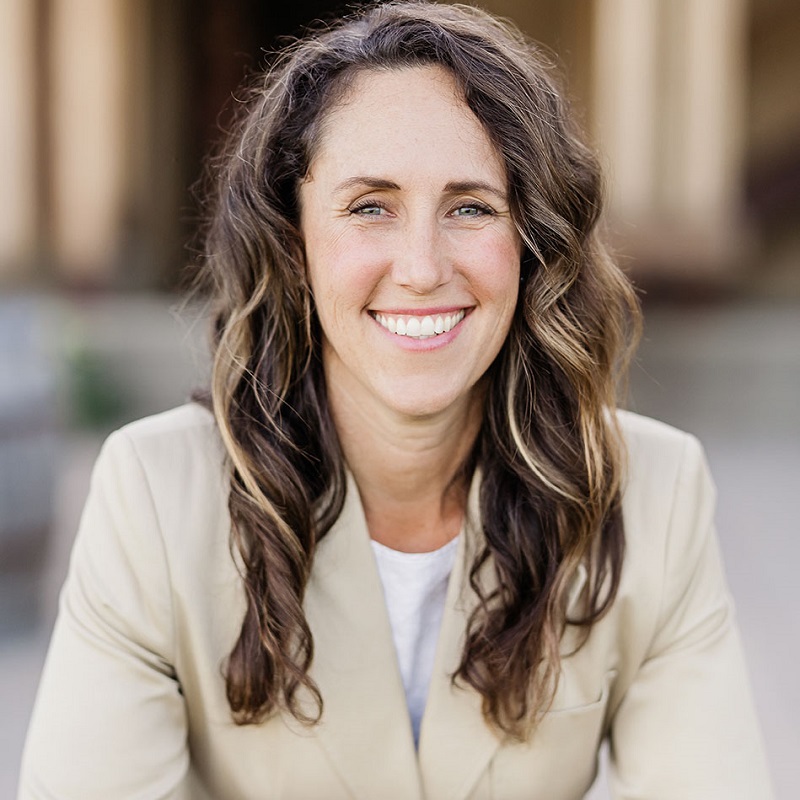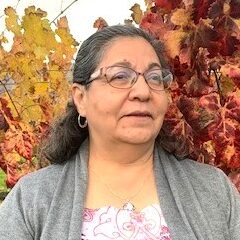The California Agricultural Mediation Program
About CALAMP
The California Agricultural Mediation Program (CALAMP) is the official United States Department of Agriculture certified agricultural mediation program for California. CALAMP’s services are free to the agricultural community on many issues. Mediation is a way to resolve disputes using an impartial person to assist parties in negotiating their differences.
Haga clic aquí para ver el folleto de CALAMP en español | View the Spanish-language CALAMP brochure
The California Agricultural Mediation Program provides free mediation services to the agricultural community on many issues. Mediation is an informal and fast way to resolve problems and I encourage you to contact them if you need assistance. The program is certified by CDFA and USDA.
What Kind of Agricultural Issues Can Be Mediated for Free?
Contracts, Farm Management, and Labor
Operating a farm requires overseeing general farm management issues as well as managing labor and contractual issues. When problems in these areas arise, the mediation program can help the parties discuss the issue in a constructive manner and develop mutually acceptable solutions.
Cooperatives
Credit Counseling
When finances are tight, farmers must make critical decisions about paying back farm loans, credit card companies, and lessors, while still meeting basic living expenses. Credit counseling can help farmers get an overview of their financial situation, including cash flow requirements, and develop a plan to work with creditors in order to maintain farm operations.
Crop Insurance
Crop damage due to pests or weather can be devastating, but crop insurance doesn’t always provide the relief expected by a farmer. Mediation can help farmers and insurance companies work out damage claims on USDA Risk Management Agency insurance policies.
Family Farm Transitions
Decisions about the long term future of a family farm can be financially and emotionally challenging. A neutral mediator can help farm families clarify changing roles and responsibilities, agree on financial terms, and navigate difficult conversations that often are part of family farm transitions.
Farm Credit/Debt Issues
Farm-related credit and debt issues can arise with feed or equipment dealers and credit card companies. Mediation can help work out lump-sum or monthly installment payment plans or other arrangements.
Farm Loans
Farm loans can provide crucial funding for farm ownership and operating expenses. Loan sources can include the USDA Farm Service Agency, Farm Credit banks, private banks, or even a friend or family member. If repayments have become a problem or changes are needed to the loan’s terms, a neutral mediator can help with loan modifications and repayments. Working with a mediator may also help address possible foreclosures.
Farmer-Neighbor Disputes
Disputes related to noises, odors, pesticide application or other issues can cause friction with nearby property owners. Mediation can help parties craft solutions to address concerns that arise from farming operations.
Farmers Markets
Leases (Land and Equipment)
Leases are important options for long term access to farmland, or for equipment use, but parties may differ in how they interpret the terms after the lease is executed. Conditions may have changed, or one side may be perceived as not living up to the bargain. Mediation can help parties negotiate the terms of new land and equipment leases and resolve conflicts with existing leases.
Organic Certification
Disagreements about organic certification or de-certification can have major impacts on market access. Mediation can help organic farmers and certifying agents focus on areas of contention to develop mutually agreeable solutions.
Pesticide Issues
Pesticide use is heavily regulated and can be contentious. Mediation can help parties address issues concerning pesticide application, enforcement, drift, buffers, and other issues.
USDA Farm and Conservation Programs
USDA farm and conservation programs often have complicated requirements that can include significant penalties for non-compliance. Farm or environmental conditions can change, making it difficult to meet planned objectives. Misunderstandings can arise about initial expectations or whether expectations have been met. Mediation can facilitate communication, help parties better understand each other’s perspectives, and resolve underlying issues. Mediation helps the farmer maintain control over final decision making.
USDA Rural Development Loans
USDA Rural Development loans also offer home ownership opportunities to low- and moderate-income rural Americans. When problems arise, mediators can help parties reach agreement on loan denials, modifications, and repayment plans.
Wetlands Determinations
Wetlands determinations can limit options for use of the land. If a farmer disagrees with a wetlands determination, mediation can be a useful process to bring experts into the process to ensure both sides agree on delineation of the wetland.
How Much Does Mediation Cost?
CALAMP provides free mediation services to the agricultural community in California on the issues listed above. For other agricultural issues, CALAMP will provide the mediation services free of charge when other funding sources are available. In some cases, CALAMP may ask parties to pay based on a sliding scale.
For other common questions about mediation, see our FAQ.
Steps To Request Mediation Through CALAMP
- Fill out and submit a Request for Mediation form.
- CALAMP staff will confirm that the other party (or parties) is willing to participate in the mediation.
- CALAMP staff will conduct brief confidential interviews to learn background information about the dispute.
- CALAMP will assign a mediator from the Agricultural Mediation Roster or CALAMP staff based on subject matter expertise, geography, and availability.
- The mediator will contact the parties to arrange a date, time and location for the mediation session.
Program Contacts
Government Organization Links
Bring financial stability to your operation. See how ag credit mediation can help.
CALAMP Staff

Mary Campbell
Program Manager and Mediator

Jenna Muller
Program Manager and Mediator

Matt Strassberg
Director
Matt is the director of the Environmental Mediation Center and the administrator of the EMC’s agricultural mediation programs. He is an attorney and mediator with over thirty years of experience in environmental law and mediation. He was the founding director of Green Mountain Environmental Resolutions, a dispute resolution firm focused on developing collaborative solutions to environmental and land use disputes. He serves on the Steering Committee of the Coalition of Agricultural Mediation Programs and is listed on the roster of the US Institute for Environmental Conflict Resolution.
CALAMP Mediators

John Bailey
Mediator

Lisa Ballin
Mediator

Donald Cripe
Mediator

Donald Fischer
Mediator

Elvia García
Mediator
Elvia is a mediator, restorative justice facilitator, conflict engagement coach and conflict resolution instructor. She is a graduate of the University of California at Davis with over 30 years of experience in mediation and facilitation. She is a native of Mexico and grew up in Gilroy, California. Her first experiences of farming come from growing up working alongside her parents and siblings harvesting crops and packing farm products. Elvia is experienced in mediating a wide variety of conflicts, including complex public policy issues, intentional community and housing issues, workplace, family, and elder care issues, and organizational and business disputes. Elvia uses a facilitative and transformative approach to mediation. She applies her knowledge of conflict engagement coaching with mediation participants, which results in enhanced quality of the mediation experience and outcomes. Elvia is one of the founders of Yolo Conflict Resolution Center, a non-profit organization that provides mediation, restorative justice conferencing and conflict resolution training in Northern California. Elvia is skilled in providing culturally sensitive and trauma-informed services in Spanish and English.

Kara Hunter
Mediator

Lan Nguyen
Mediator

Larry Whitted
Mediator
CASE STUDIES
The above case studies are either compilations of cases with similar facts or include changes to minor details to protect the confidentiality of the mediation process and the privacy of the parties. Photos of farms and or farmers are used for decorative purposes. These farms and farmers were not involved in the above case studies.
Testimonials
The dedication of Agricultural Mediation Program mediators and their ability to get all the necessary parties willing to work together constructively made it possible to reach a positive outcome in a case where it didn’t seem likely.
I tried to resolve my dispute on my own for 18 months but was shot down on every avenue I tried. Once we got into mediation, they really started to listen to me for the first time and we were able to resolve the dispute quickly.
The mediation enabled the parties to communicate their interests clearly and effectively and reach a resolution quickly that was acceptable by all parties. I felt really good about how the mediation was conducted and would use Agricultural Mediation Program’s services again.
